Stay Safe: What to Do During a Storm on Your Greek Vacation
The storm on vacation can suddenly endanger your safety. For example, strong winds, storms, and sudden dust devils are common occurrences on popular beaches in Greece. Here are clear and useful instructions on how to protect yourself during a storm at sea.
Follow emergency alerts (112)
The Greek state sends emergency messages through the 112 system to the phones of all citizens and tourists. If you receive such a message, immediately read it and follow the instructions. These messages contain vital information about weather disasters and instructions on how to behave.
Where to take shelter during a storm?
During a storm, strong winds, or heavy rains:
- Stay indoors (hotel, apartment, restaurant).
- Avoid open terraces and windows as strong winds can cause damage.
- If you are outdoors, seek shelter immediately and avoid staying on the beach or near water.
Is it safe to swim during the rain?
It is not recommended to swim during rain or a storm, especially if there is thunder. Water is an excellent conductor of electricity, which increases the risk of lightning strikes while you are in the sea or pool.
Proper parking of vehicles
Before the storm arrives, it is important to park your vehicle in a safe place:
- Avoid parking near the sea, as high tides and waves can damage or carry away the vehicle.
- If the street descends towards the sea, do not park on inclines leading to the shore, as flash floods during heavy rains can carry away the car. It is best to park in side streets parallel to the sea to avoid risks of flash floods.
- Avoid parking under trees, as strong winds can knock down branches or the entire tree.
- Do not park near old or unstable structures that may fall during a storm.
Dust Devils
On beaches in Greece, occasional dust devils or sand whirlwinds occur, known as “dust devils.” These small, swirling winds can lift sand, umbrellas, and other light objects. Although they are usually harmless, they can become dangerous if they lift heavy or sharp objects.
Advice: If you notice a whirlwind while on the beach or in the water, immediately seek shelter in a safe place, away from potentially dangerous objects like umbrellas.
Real-life Example - Experience of Our Guest
The experience of our guest, which we shared on social media, shows that such situations are possible even during a beautiful sunny day. While enjoying the beach in Sithonia, a dust devil suddenly appeared, lifting umbrellas and free sunbeds. Brave and instinctively, our guest protected his wife and young child but suffered a back injury from the umbrella strike. This event emphasizes how important it is to react quickly and seek safety when you notice such natural phenomena, whether you are in the water or on the beach.
What to do in case of a storm?
If you are near the beach or in the water during a storm:
- Immediately move away from the beach and seek shelter.
- Do not take shelter under umbrellas or trees, as they can fall or be struck by lightning.
- In emergencies, call emergency numbers.
Emergency numbers in Greece
In case of danger, immediately call one of the emergency services in Greece:
- Ambulance: 166
- Police: 100
- Fire Brigade: 199
- Emergency Service 112 (for all types of emergencies)
Conclusion
When a storm occurs during your vacation in Greece, the most important thing is to stay calm and follow the instructions sent by the Greek authorities through phone messages. Quick reaction and seeking safety can save your life and preserve your health. Always be cautious, especially if you notice sudden weather changes, winds, or the appearance of dust devils.
Your experience is important! Have you ever encountered a storm while on vacation? Share your stories in the comments below and help other travelers be better prepared. If you have any additional questions or need assistance, feel free to contact us!

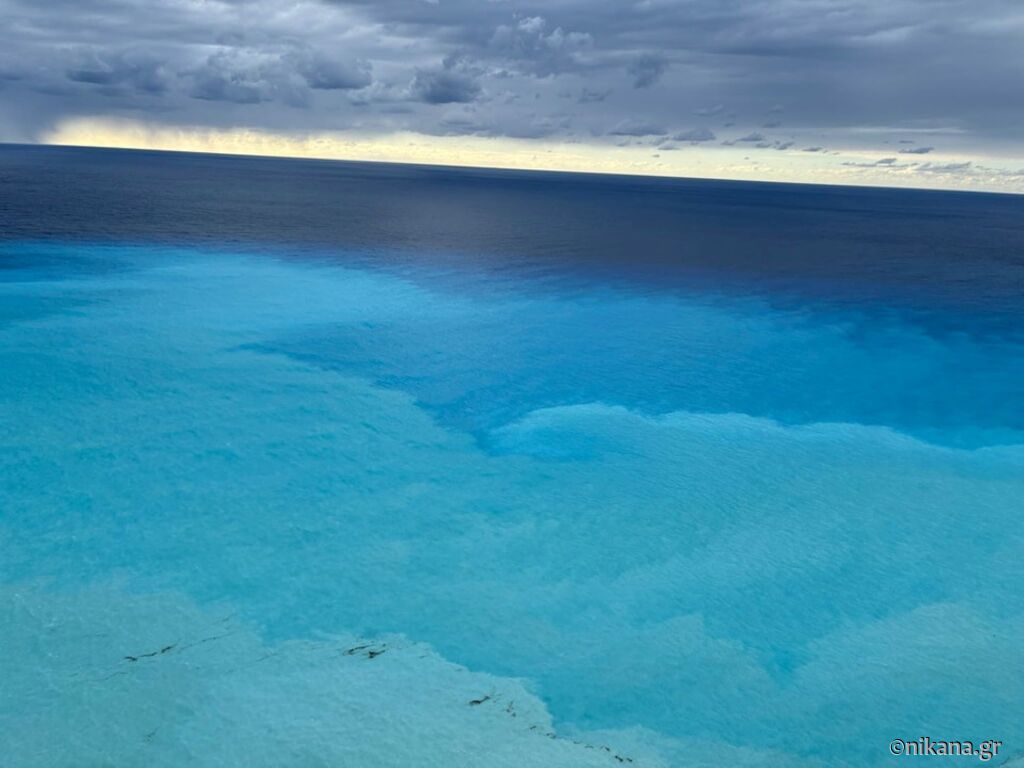
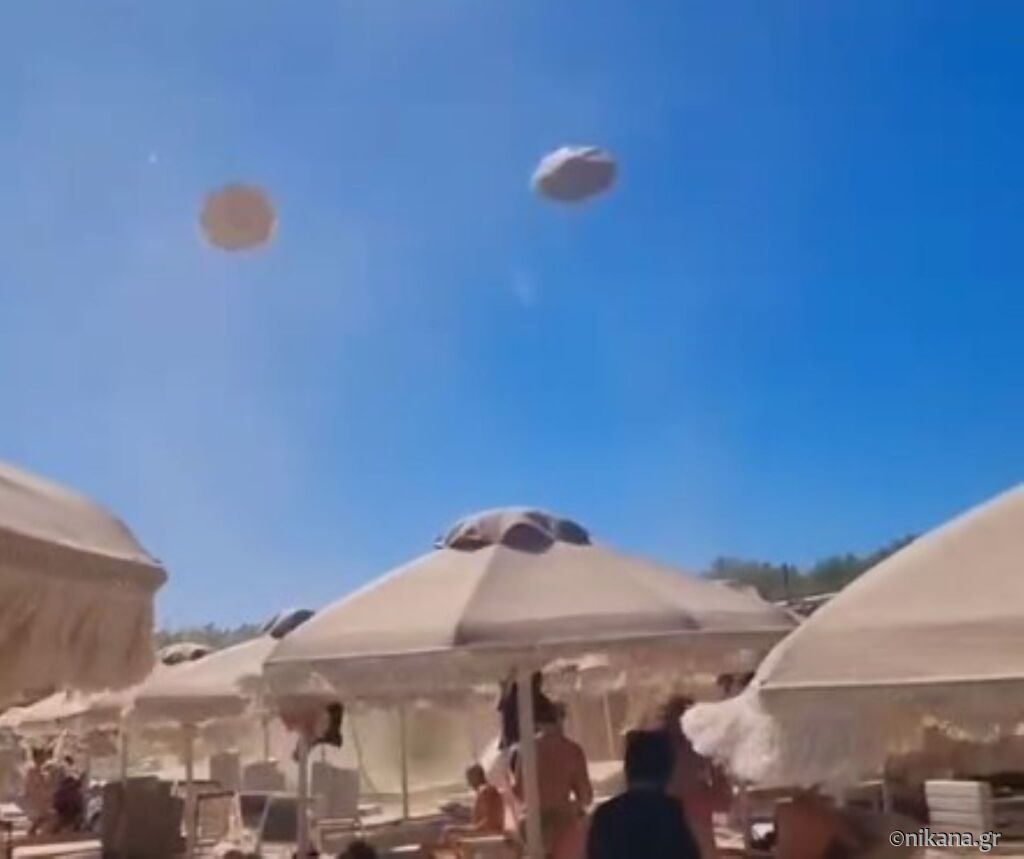
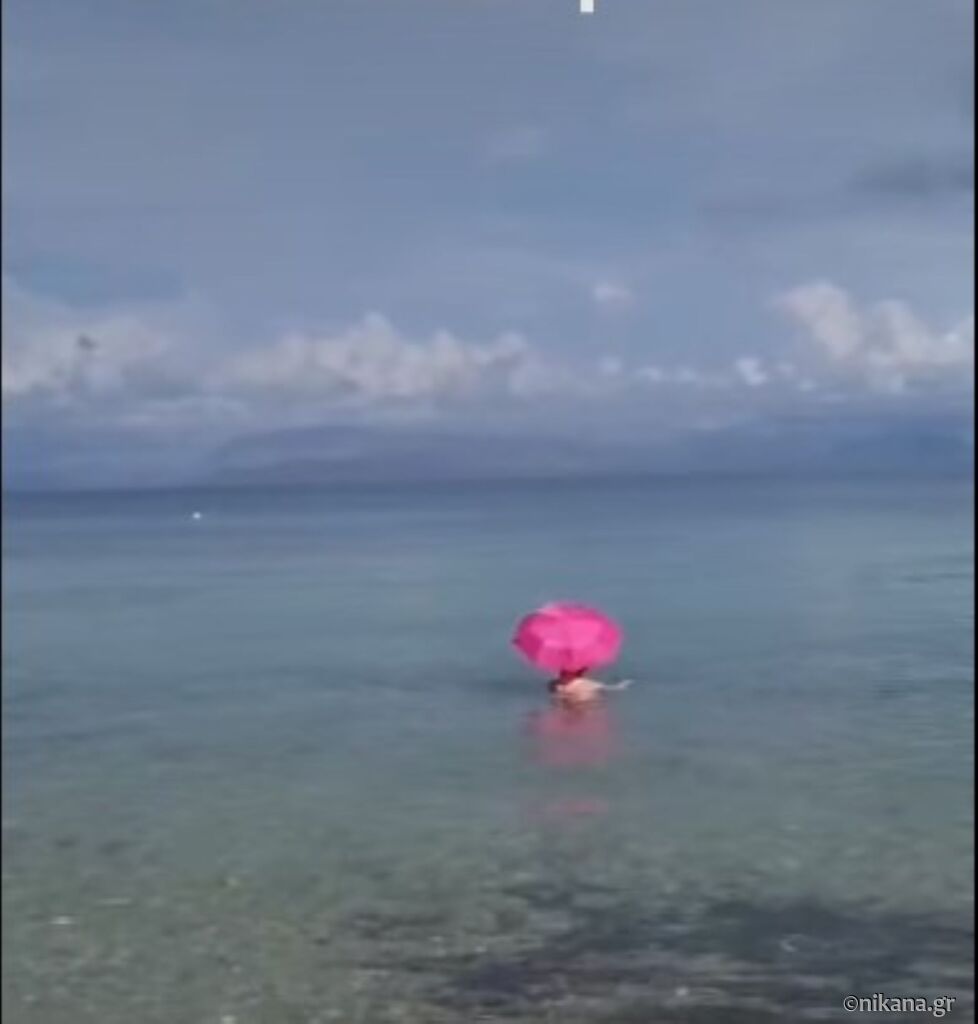
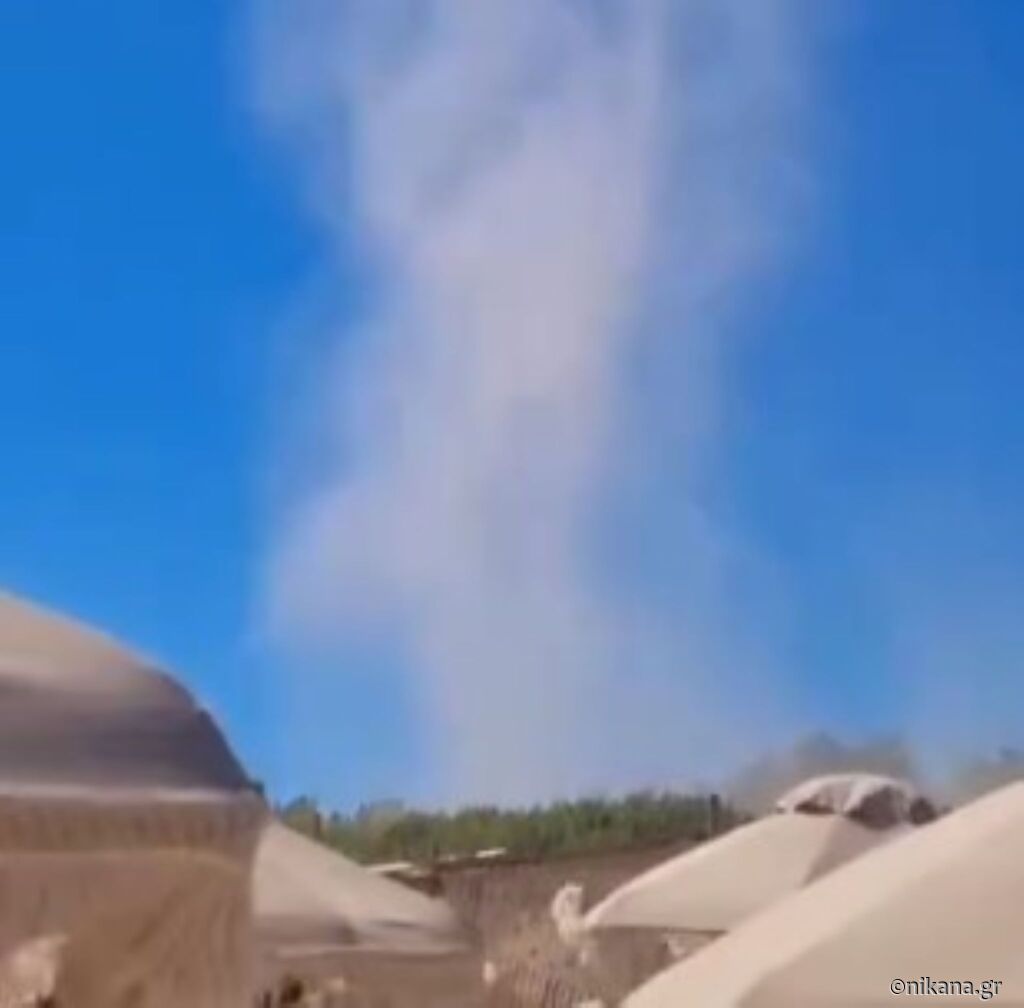
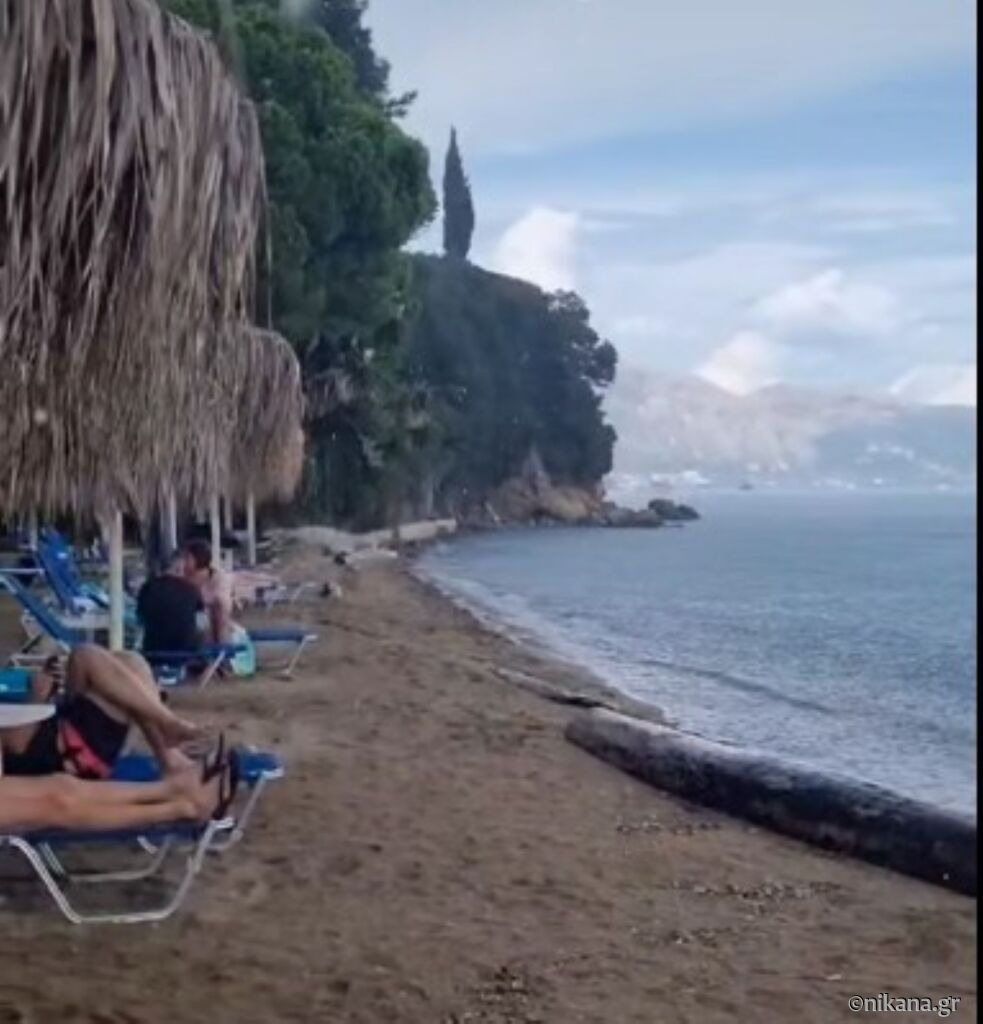
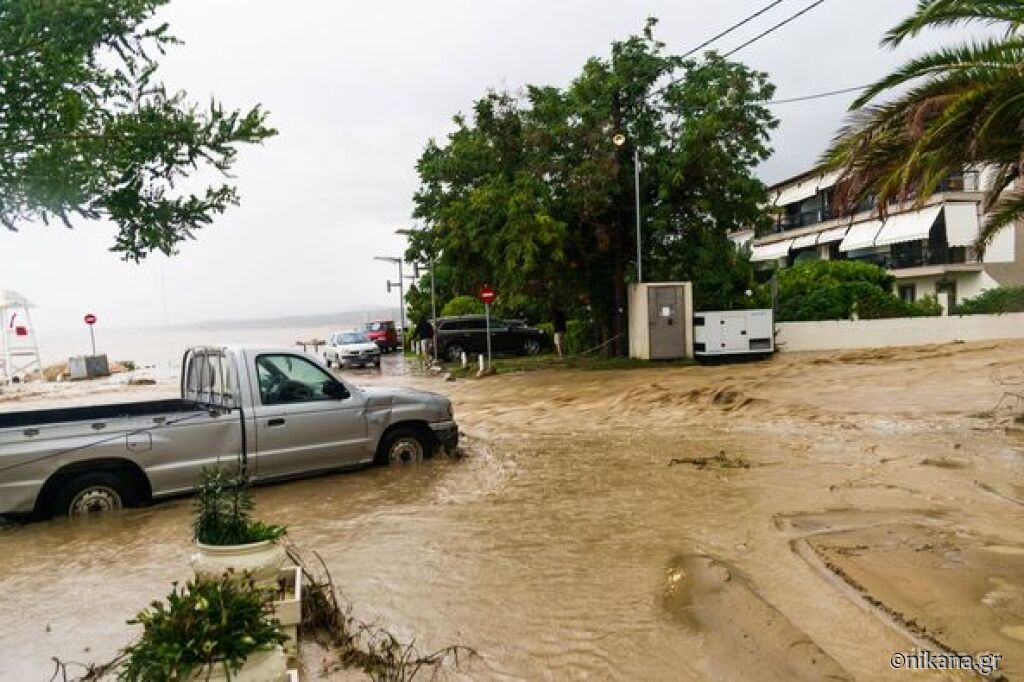










Post a Comment
NOTE
All your questions in the comments will receive an answer via email so check your inbox shortly after you posted comment. For more detailed questions and responses, contact us via mail nikana@nikana.gr.